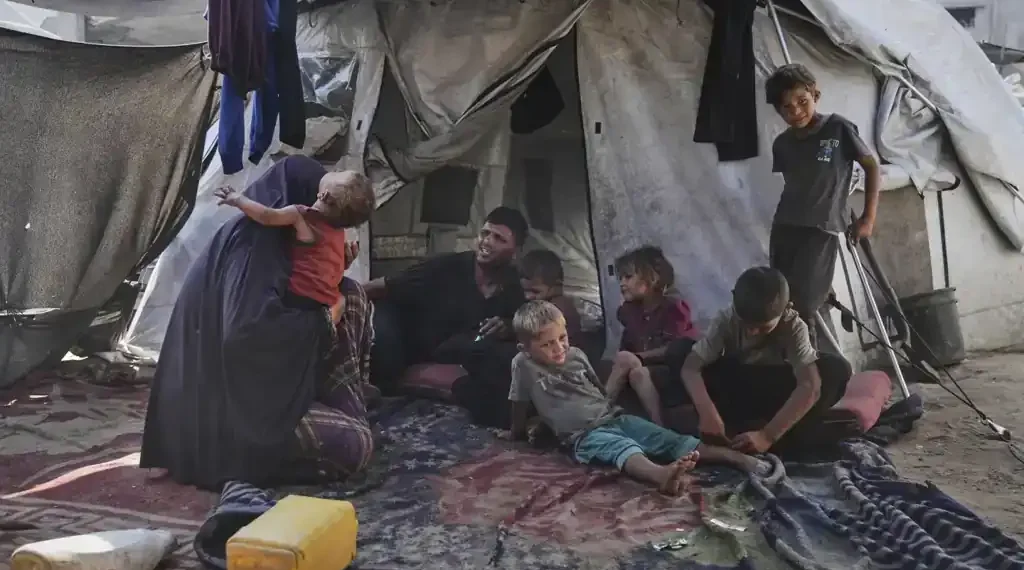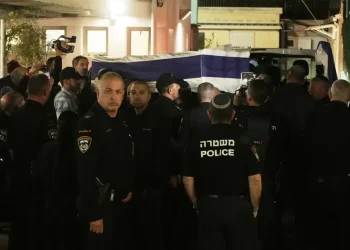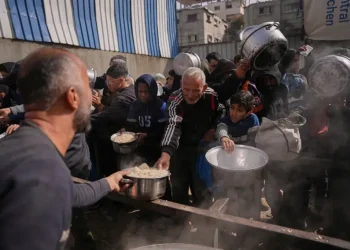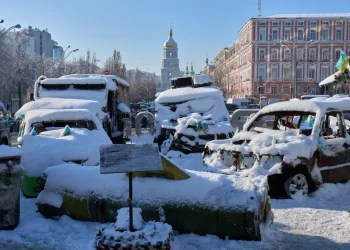A Gaza Family’s Daily Fight Against Hunger in a War-Torn Landscape
Writing Time: August 2, 2025, 14:00 (U.S. Eastern Time)
In a refugee tent along the Gaza coastline, Abeer and Fadi Sobh face a hauntingly repetitive challenge every morning: how to feed their six young children. With aid dwindling and hunger increasing, their story mirrors the broader humanitarian crisis engulfing Gaza.
Their options are limited—wait for a soup kitchen to open, hope for flour from an aid truck, or rely on the kindness of strangers. Most days, they go hungry.
Life on the Brink: Gaza’s Worsening Humanitarian Crisis
Over 22 months into the conflict, humanitarian workers warn that a full-scale famine is unfolding in Gaza. Aid restrictions, ongoing violence, and infrastructure collapse have created a catastrophic food shortage.
Israel enforced a total blockade of Gaza in March, halting the entry of food and essential supplies. Although some aid resumed in May, it remains insufficient. Much of it is hoarded or sold at inflated prices, making access for ordinary citizens increasingly difficult.
The Sobh family, displaced several times, now lives in a small tent in Deir al-Balah near Gaza City. They, like many others, rely on uncertain, infrequent charity meals or whatever scraps they can find.
Morning Routines with No Food in Sight
Fadi, a 30-year-old former street vendor, and his wife Abeer, 29, begin their mornings not with breakfast, but with seawater baths. With fresh water scarce, Abeer fetches water from the Mediterranean, pouring it over her children as they stand in a basin. It’s all they have to keep clean.
With nothing left from the previous day, Abeer sets out to beg for breakfast. Sometimes she returns with lentils, which she grinds and mixes into water for their infant daughter, Hala. On other days, she comes back empty-handed.
“One day feels like 100 days because of the summer heat, hunger, and the distress,” she says.
Scarce Aid and Dangerous Deliveries
Fadi visits a local soup kitchen, but it opens infrequently—maybe once a week—and rarely has enough food for everyone. Long waits often end with him returning home empty-handed. “The kids sleep hungry, without eating,” he says.
In the past, Fadi attempted to reach aid trucks arriving in northern Gaza. But the chaotic scenes—crowds rushing the trucks, Israeli troops firing warning shots, and desperate civilians armed with knives—made it too dangerous. Last month, Fadi was shot in the leg during one of these scrambles. Already suffering from epilepsy, he can no longer make the trip.
Meanwhile, Abeer and their older children—Youssef, 10; Mohammed, 9; and Malak, 7—walk through the streets with plastic jerrycans to collect fresh water from a central Gaza desalination plant. The children struggle under the weight, their young bodies bent under the load.
Facing Desperation with Resilience
When aid from trucks is too dangerous or unavailable, Abeer ventures out to beg directly from people who manage to secure food. “You survived death thanks to God, please give me anything,” she pleads.
Some respond to her appeals, offering small bags of flour or other items. Abeer and her son Youssef are now familiar faces at the aid distribution points. “They’re poor people, and her husband is sick,” says Youssef Abu Saleh, a man who frequently gives them part of his rations. “We’re all hungry, and we all need to eat.”
Daily Heat, Hunger, and Waiting
During the hottest part of the day, the children stay close to the tent to conserve energy. It’s not just for comfort—avoiding movement helps suppress their hunger and thirst.
As the heat fades, Abeer sends her children out to forage. They search the rubble-strewn streets for anything that might serve as fuel for cooking—scraps of wood, plastic bottles, even old shoes.
Once, one of the boys found a usable pot in the trash. It’s now the only cooking utensil the family has left.
A Meal—If They’re Lucky
On good days, Abeer gathers enough ingredients to prepare a thin lentil soup. But many nights, there is no dinner. They all go to bed hungry—again.
“I am tired. I am no longer able,” Abeer says, her voice heavy with fatigue. “If the war goes on, I am thinking of taking my life. I no longer have any strength or power.”
A Broader Humanitarian Failure
The Sobh family’s story is not unique. According to aid organizations and food experts, the Gaza Strip is now on the edge of a famine. The UN has repeatedly urged increased humanitarian access, but the political and security challenges remain unresolved.
Israel says the blockade is part of efforts to pressure Hamas, which continues to hold hostages from its October 2023 attack. Yet the consequences have rippled far beyond military targets, reaching vulnerable civilians like the Sobhs.
Even when aid does make it into Gaza, delivery is chaotic and dangerous. Armed groups, looters, and disorganized distribution networks often prevent food from reaching those who need it most.
A Cry for Help and Humanity
Global health and humanitarian experts have called for immediate intervention. Without significant changes in aid delivery and access, the humanitarian crisis in Gaza is expected to worsen.
For the Sobh family, each day is a battle for survival—one fought not with weapons, but with empty pots, pleading voices, and the hope of one more meal.
This article was rewritten by JournosNews.com based on verified reporting from trusted sources. The content has been independently reviewed, fact-checked, and edited for accuracy, neutrality, tone, and global readability in accordance with Google News and AdSense standards.
All opinions, quotes, or statements from contributors, experts, or sourced organizations do not necessarily reflect the views of JournosNews.com. JournosNews.com maintains full editorial independence from any external funders, sponsors, or organizations.
Stay informed with JournosNews.com — your trusted source for verified global reporting and in-depth analysis. Follow us on Google News, BlueSky, and X for real-time updates.













